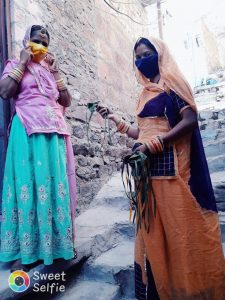When the spread of COVID-19 accelerated in India, the informal economy and migrant workers were significantly impacted. However the government’s response schemes did not focus on their needs. For these vulnerable populations, it was not easy to follow the official guidelines for preventing virus spread. They experience precarious living conditions, shared water supplies, insecure food procurement and dependence on informal sector incomes. Social distancing was physically impossible.
This project has investigated best practice community-led responses in eight Indian cities (Ahmedabad, Amalner, Bhopal, Delhi, Jaipur, Jodhpur, Ranchi, and Surat). By using a multi-network approach, Dr Melissa Bedinger has learned from on-the-ground community responses.

Working with Siraz Hirani of the Mahila Housing Sewa Trust, the project adopted an Event Analysis of Systemic Teamwork (EAST) method to interview individuals living in high-density, urban population centres. They learned how communities were adapting to virus containment measures while dealing with increased food insecurity.
The project has identified that community responses ‘fill gaps’ in formal government response systems, by creating local COVID-19 containment measures. Local adaptations to local needs have been critical in achieving successful outcomes. These lessons are guiding future training and further community outreach.
“…I was not knowing anything beforehand, as the lockdown was announced and the pandemic rose suddenly, then by seeing the problems of people we understood things, and secondly, I had knowledge due to the organization with which I am associated [MHT], there I have seen people helping one another, so when we can fight for our water and waste, then we can fight for anything else even. I gained all these planning and understanding from there itself, and I am happy that I am able to do all these things.”
